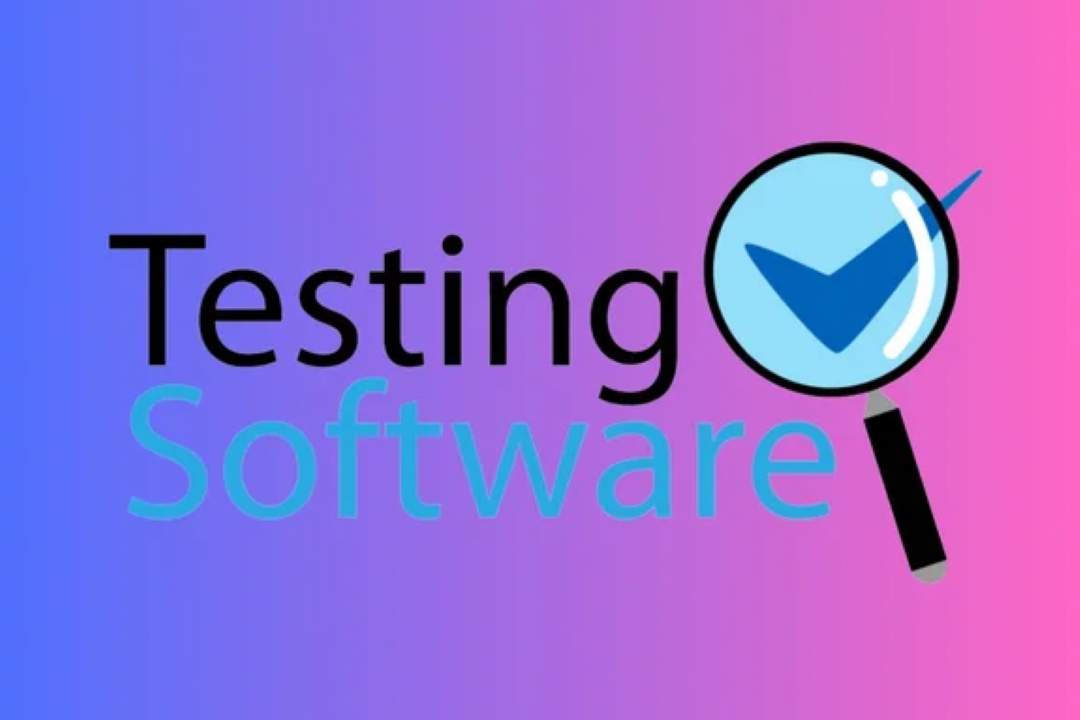SELENIUM Udemy COURSE
The Selenium Automation Testing course on Udemy is an intensive program designed to teach participan
SELENIUM Udemy COURSE
The Selenium Automation Testing course on Udemy is an invaluable resource for anyone looking to enhance their skills in software testing and quality assurance. With a focus on practical application, the course provides comprehensive training on using Selenium, one of the most widely used tools for automating web applications. Participants learn to create robust test scripts, understand the intricacies of test automation, and implement best practices through hands-on projects. This course is essential for aspiring testers and developers, as it equips them with the necessary skills to improve software quality, accelerate development cycles, and increase employability in a competitive job market.
To Download Our Brochure: https://www.justacademy.co/download-brochure-for-free
Message us for more information: +91 9987184296
The Selenium Automation Testing course on Udemy is an invaluable resource for anyone looking to enhance their skills in software testing and quality assurance. With a focus on practical application, the course provides comprehensive training on using Selenium, one of the most widely used tools for automating web applications. Participants learn to create robust test scripts, understand the intricacies of test automation, and implement best practices through hands on projects. This course is essential for aspiring testers and developers, as it equips them with the necessary skills to improve software quality, accelerate development cycles, and increase employability in a competitive job market.
Course Overview
The “Selenium Udemy Course” offers an in-depth exploration of automation testing using Selenium, a crucial tool for web application testing. Designed for both beginners and intermediate users, the course covers fundamental concepts, installation procedures, and advanced techniques for creating effective test scripts. Through a combination of video lectures, hands-on projects, and real-time examples, participants gain practical experience in automating browser interactions and validating web applications. The curriculum also emphasizes best practices in test automation, providing learners with the skills needed to efficiently handle testing challenges and improve software quality. By the end of the course, attendees will have a comprehensive understanding of Selenium and be well-equipped to implement automation in their testing processes.
Course Description
The “Selenium Udemy Course” is a comprehensive program designed to equip learners with the essential skills and knowledge needed for effective web application testing using Selenium. This course covers everything from the basics of Selenium and its setup to advanced automation techniques, enabling participants to create and execute test scripts efficiently. Through engaging video lectures and real-time projects, learners gain hands-on experience that solidifies their understanding of browser automation and testing best practices. By the end of the course, students will have the practical expertise required to confidently implement Selenium in real-world testing scenarios, ensuring improved software quality and streamlined testing processes.
Key Features
1 - Comprehensive Tool Coverage: Provides hands-on training with a range of industry-standard testing tools, including Selenium, JIRA, LoadRunner, and TestRail.
2) Practical Exercises: Features real-world exercises and case studies to apply tools in various testing scenarios.
3) Interactive Learning: Includes interactive sessions with industry experts for personalized feedback and guidance.
4) Detailed Tutorials: Offers extensive tutorials and documentation on tool functionalities and best practices.
5) Advanced Techniques: Covers both fundamental and advanced techniques for using testing tools effectively.
6) Data Visualization: Integrates tools for visualizing test metrics and results, enhancing data interpretation and decision-making.
7) Tool Integration: Teaches how to integrate testing tools into the software development lifecycle for streamlined workflows.
8) Project-Based Learning: Focuses on project-based learning to build practical skills and create a portfolio of completed tasks.
9) Career Support: Provides resources and support for applying learned skills to real-world job scenarios, including resume building and interview preparation.
10) Up-to-Date Content: Ensures that course materials reflect the latest industry standards and tool updates.
Benefits of taking our course
Functional Tools
1 - Selenium WebDriver: This is the core component of the Selenium framework, allowing for the automation of web applications for testing purposes. WebDriver provides a programming interface to create and execute test scripts across various browsers, including Chrome, Firefox, and Edge. By utilizing WebDriver, students will learn how to interact with web elements such as buttons, forms, and links, simulating real user actions. The course will cover important concepts like locating elements using various strategies (ID, XPath, CSS selectors) and managing browser drivers effectively for optimal test execution.
2) Selenium IDE: The Selenium Integrated Development Environment (IDE) is a browser extension that enables users to quickly record and playback tests without the need for detailed programming knowledge. In the course, students will familiarize themselves with the IDE to create simple automation scripts through a user friendly interface. This tool is ideal for beginners as it helps in understanding basic automation concepts, allowing learners to experiment with test cases and gain confidence before diving into more complex automation using WebDriver.
3) TestNG: TestNG is a popular testing framework used in conjunction with Selenium to manage and organize test execution, making it easier for students to write and run their tests. The course covers TestNG’s features, such as annotations, grouping tests, data driven testing through parameterization, and generating reports. By using TestNG, learners will enhance their testing strategy, enabling them to execute multiple test cases efficiently and analyze results systematically.
4) Maven: Apache Maven is a build automation tool used primarily for Java projects, and it plays a crucial role in managing project dependencies in Selenium automation. Students will learn how to configure Maven for their Selenium projects, streamlining the setup and management of libraries required for their tests. The course will guide learners through creating a Maven project structure, handling dependencies, and generating reports, which ultimately simplifies the process of developing and maintaining their automation frameworks.
5) Cucumber: Cucumber is a tool that supports Behavior Driven Development (BDD), allowing students to write test cases in simple, understandable language. The integration of Cucumber in the Selenium course teaches learners how to write acceptance tests that are readable by non technical stakeholders, enabling collaboration between developers, testers, and business analysts. By using Cucumber with Selenium, students will understand how to implement features and maintain robust test cases that can evolve alongside the application.
6) Git and GitHub: Version control systems like Git, along with platforms like GitHub, are essential for collaborating on software projects, including those involving Selenium tests. The course will introduce students to Git commands for version control, enabling them to track changes, manage project history, and collaborate with team members effectively. By leveraging Git and GitHub, learners will cultivate skills that are critical for working on team oriented projects, ensuring their test automation code is well organized and easily accessible.
7) Jenkins: Jenkins is an open source automation server that helps in integrating and implementing continuous integration and continuous deployment (CI/CD) practices. In the course, students will explore how to set up Jenkins to automatically execute Selenium tests as part of the build process, ultimately ensuring high quality software delivery. Through Jenkins, learners will understand how to configure job triggers, manage build pipelines, and generate test result reports, enhancing their development workflow and overall testing strategy.
By utilizing these tools, participants will not only gain practical skills in automation testing but also become familiar with industry standard practices and frameworks, making them valuable assets in the tech industry.
Certainly! Here are additional points to enrich the Selenium automation testing course offered by JustAcademy:
8) Page Object Model (POM): The Page Object Model is a design pattern that enhances test maintenance and readability by creating a separate object repository for web elements. The course will guide students on implementing POM to separate the test logic from the UI elements. By applying this model, learners will create reusable component libraries for their tests, leading to cleaner code, easier maintenance, and improved scalability, especially in larger applications.
9) Data Driven Testing: This testing methodology allows students to run the same test with multiple sets of data, enhancing test coverage and efficiency. The course will introduce various approaches to implement data driven tests with Selenium, such as using Excel files, CSV files, or databases. By mastering data driven testing, learners will be able to validate application behavior under different conditions and ensure comprehensive testing without duplicating test scripts.
10) Headless Browser Testing: Headless browser testing allows for running tests without a user interface, which can speed up test execution and is particularly useful for continuous integration environments. The course will explore tools like HTMLUnit or PhantomJS, demonstrating how students can configure and execute Selenium tests using headless browsers. This knowledge helps streamline the testing process in CI/CD pipelines and introduces students to a broader range of testing scenarios.
11 - Error Handling and Debugging: Effective error handling and debugging are crucial skills for any automation tester. The course will cover strategies for identifying and handling exceptions, using try catch blocks, and implementing logging mechanisms to track test execution and failures. By understanding how to troubleshoot issues effectively, learners will develop the resilience needed to tackle common challenges in automation testing.
12) Cross Browser Testing: Given the diversity of browsers and operating systems, cross browser testing ensures that applications function correctly under various conditions. The course will provide students with techniques for setting up cross browser testing environments using Selenium Grid, enabling them to run their tests in parallel across different browser and platform combinations. This not only saves time but also ensures that applications deliver a consistent user experience.
13) Selenium Grid: Selenium Grid is a powerful tool for running tests on multiple machines and browsers simultaneously. The course will expose learners to the principles of distributed testing, allowing them to set up and configure Selenium Grid to enhance test execution speed and efficiency. Students will learn how to manage nodes and hubs and understand best practices for scaling their test environments to accommodate large test suites.
14) Mobile Testing with Appium: As mobile applications continue to dominate, understanding mobile testing is essential. The course will introduce Appium, an open source tool for automating mobile applications. Students will learn the basics of mobile testing and how to set up Appium alongside Selenium for comprehensive testing of web and mobile applications, further broadening their expertise in the automation domain.
15) API Testing with Postman: While primarily focused on UI automation, understanding API testing is equally important. The course will include an introduction to using Postman for testing APIs, teaching students how to validate backend services and ensure that they function correctly. By pairing API testing with UI automation, learners can enhance their overall testing strategy and develop a comprehensive understanding of application behavior.
16) Performance Testing Basics: An overview of performance testing helps students understand the importance of application responsiveness and speed. The course will briefly touch upon tools like JMeter or Gatling. By integrating performance testing knowledge with automation, learners will be better equipped to identify bottlenecks and ensure applications meet performance standards.
17) Real Time Project Work: To solidify their learning, students will engage in hands on projects that simulate real world scenarios. The course will guide them through the end to end automation process, from test planning to execution and reporting. By tackling practical projects, learners will apply their knowledge, develop problem solving skills, and enhance their portfolios, demonstrating their expertise to potential employers.
These advanced topics will provide learners with a well rounded education in Selenium automation testing, ensuring they are prepared for the current demands of the tech industry.
Browse our course links : https://www.justacademy.co/all-courses
To Join our FREE DEMO Session:
This information is sourced from JustAcademy
Contact Info:
Roshan Chaturvedi
Message us on Whatsapp: +91 9987184296
Email id: info@justacademy.co
Free Flutter Bottom Navigation Bar












